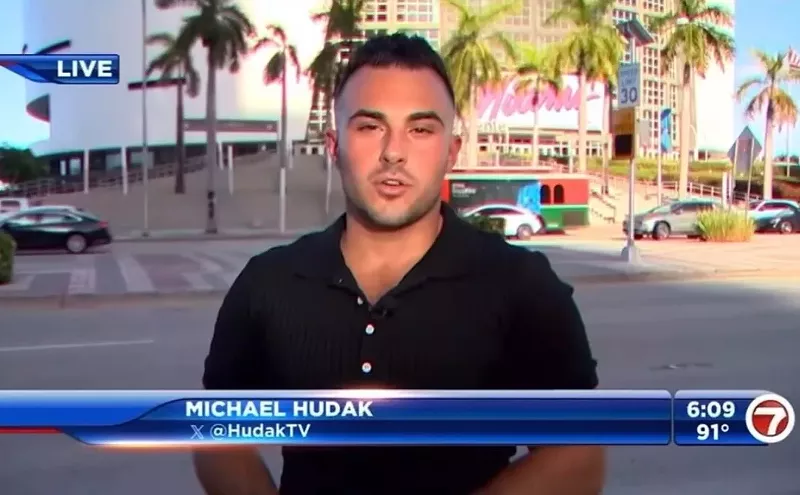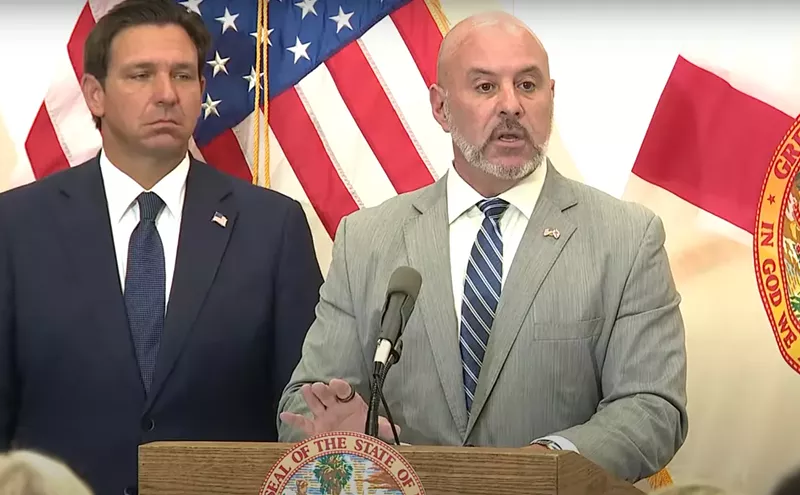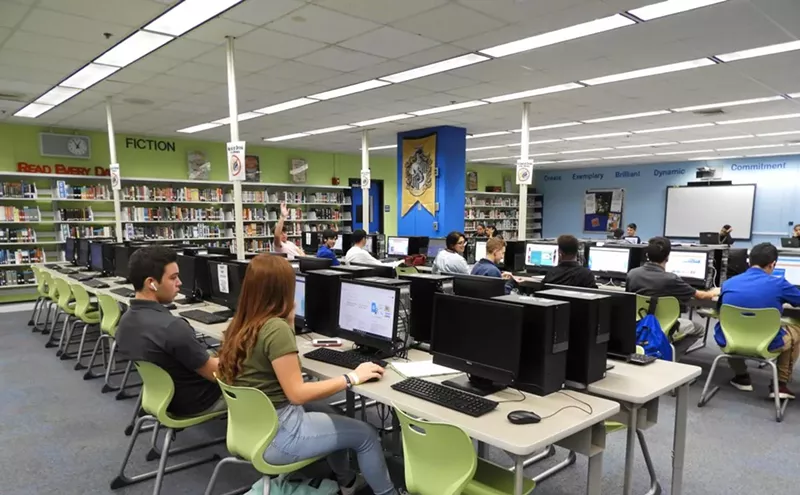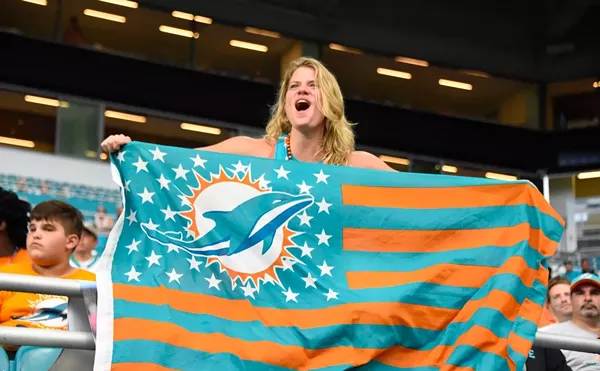Less than 48 hours ago, nine Miami-Dade County commissioners hemmed and hawed over a citizen-backed initiative that would have cut campaign donations to just $250 per person and banned people who get huge checks from the county from donating.
Those same commissioners decided Wednesday afternoon to prevent voters from getting a say on the idea after County Attorney Oren Rosenthal argued the bill's language was illegal. Activists, though, said the county was just making up excuses to tank a bill it didn't like.
A county judge has now sided with the activists. This afternoon, Judge William L. Thomas ruled that the Miami-Dade County Commission was either grossly incorrect or straight up lying to the public on Wednesday. Thomas said there was "no rational or legal reason" for the county to have killed the bill, and he ordered it be placed for a countywide vote this
In his order, Thomas wrote that "there is no legitimate issue as to the propriety of the form of the initiative petition, the manner in which it was circulated, nor of the validity or sufficiency of the numbers of voters who signed it," according to a copy New Times obtained.
Gihan Perera, one of the activists involved in collecting petition signatures, says the petition's supporters are feeling "completely vindicated" today.
"Our people went and talked to their neighbors about why they wanted this initiative," he says. "Then, after we did that, it was one after the next of obstacles. This was a full civil rights movement in just three months."
The judge unleashed a stream of criticism on the county for trying to block the measure. Perera sent New Times a series of videos showing Thomas berating the county's attorneys.
"I'm trying to understand how we get to this point," he said. "Everything's been done, and then the legal eagles get ahold of this, and they say, 'Oh, no. Sorry, can't approve it.' And then they're out of time."
The county has reportedly already appealed the decision.
Regardless, Thomas' order is a victory for representative democracy in Miami. According to county law, citizens can force Miami-Dade to put a referendum up for public vote if more than 4 percent of voters sign a petition demanding the county do so.
On August 2, the union-funded group An Accountable Miami-Dade sent the Board of Elections 127,000 petitions (far more than the minimum required) in two U-Haul trucks.
Those petitions proposed legal changes that are, nationally speaking, pretty tame: Accountable Miami-Dade's law would cut campaign donations to just $250 per person, a law that is already on the books in Fort Lauderdale, as well as add a
County politicians and local lobbyists have complained about that last proposal, but those complaints simply ignore reality: Federal contractors have been banned from donating to political campaigns since Franklin Roosevelt held office. Judge Merrick Garland then upheld that federal ban in 2015.
Despite the fact that county law says the Board of Elections must begin authorizing any petitions it receives within 30 days, the Miami-Dade Commission originally claimed it had no method of "ordering" the Board to start counting. This led to protests both on Twitter and in person, including a 100-person demonstration at County Hall. Accountable Miami-Dade also sued both Gimenez and the government.
Protesters claimed the county commissioners, as well as Miami-Dade Mayor Carlos Gimenez, were making up fake legal steps to avoid passing a bill that would have directly affected their campaigns. According to the Miami-Dade County Board of Elections, Gimenez has raised more than $1.6 million during his reelection campaign this year.
The petitions were finally counted Tuesday night, and the county said 55,380 of the signatures that Accountable Miami-Dade delivered were legitimate — enough to force a November referendum.
But on Wednesday, Rosenthal, the county attorney, told the commission not to put the initiative on the ballot. He claimed the way Accountable Miami-Dade's law was written was not "legally sufficient" and would not hold up if made into law. He claimed that the measure's title was one word too long and that some of the
Acting on his advice, nine county commissioners voted to kill the measure Wednesday. (Four voted in favor of placing it on the ballot.)
The two parties then met in a hearing for Accountable Miami-Dade's lawsuit the next morning, when Rosenthal again argued the county had an obligation to kill a bill that did not meet legal requirements. Instead, Thomas threw out the county's argument today.
"The parties agree that an immediate ruling from the Court is essential to the proper administration of justice," he wrote. "Therefore, this Court directs the respondents to immediately, without delay, begin the process of placing the 'campaign Finance Reform Initiative' on the November 8,
Here's a full clip of the proceedings, filmed by blogger Al Crespo:
On Wednesday, county commissioners complained that, because Accountable Miami-Dade was funded largely by political operatives in D.C. and New York, "outsiders" were targeting Miami.
Perera, the activist, who sits on Accountable Miami-Dade's board, disagrees.
"This was a complete grassroots effort," he says. "We were up against the impossible. The fact that we got support and resources from national organizations to help us do it? One hundred percent thank God."
Here's a copy of Judge Thomas' order:












